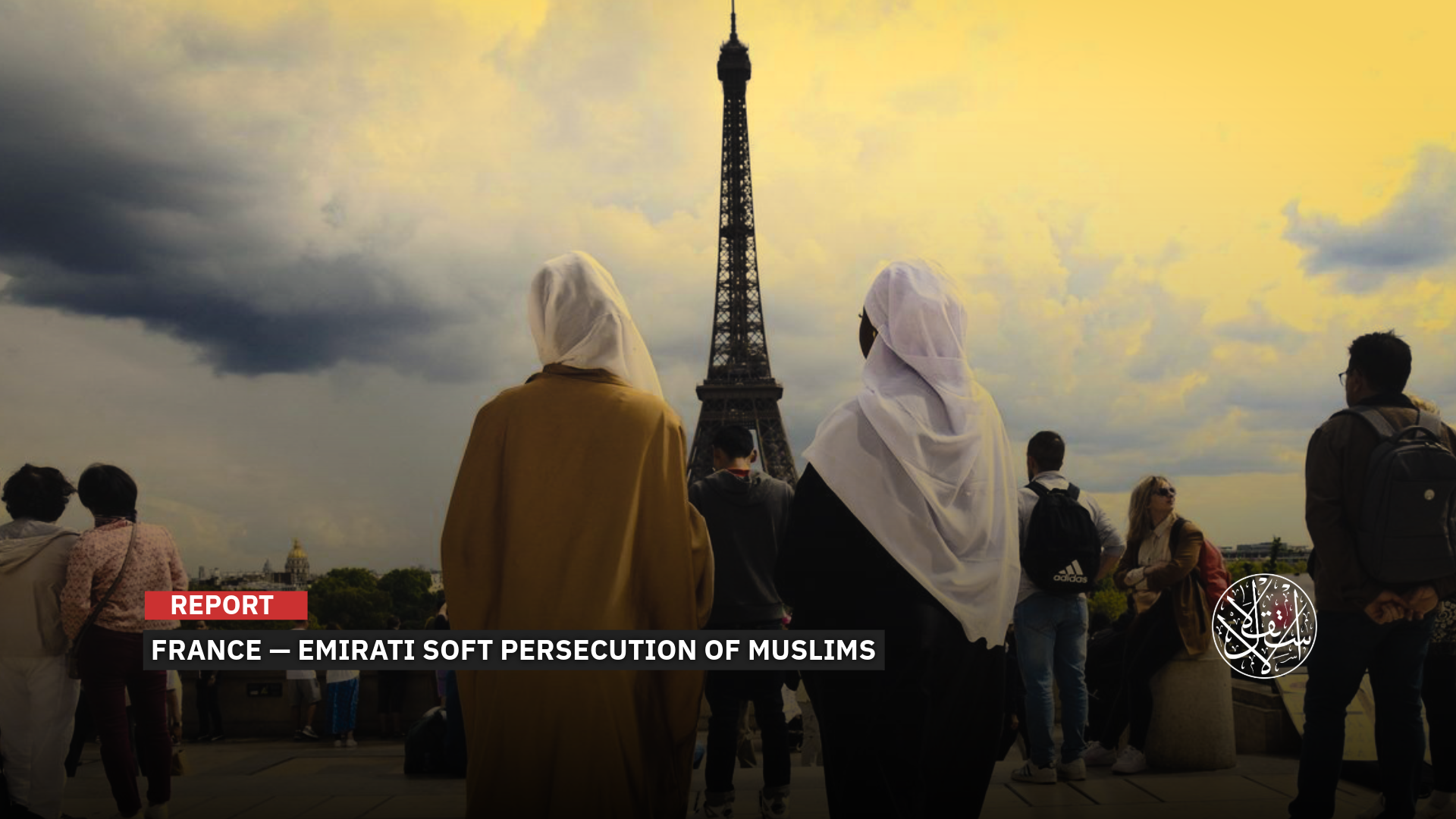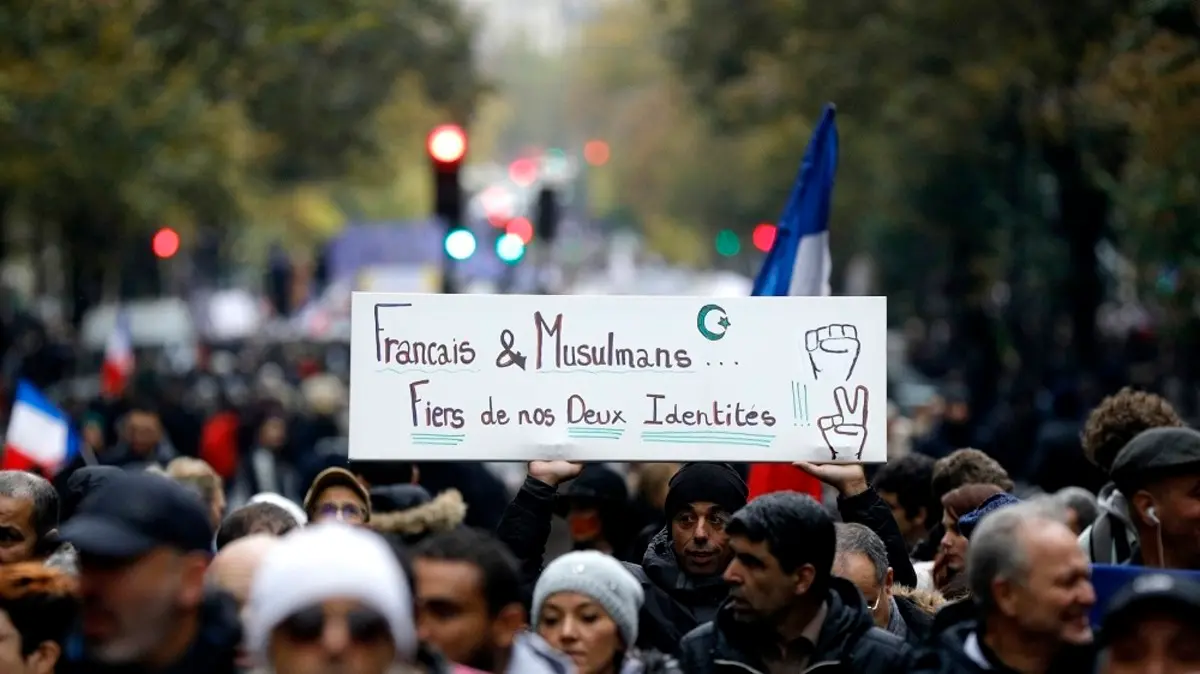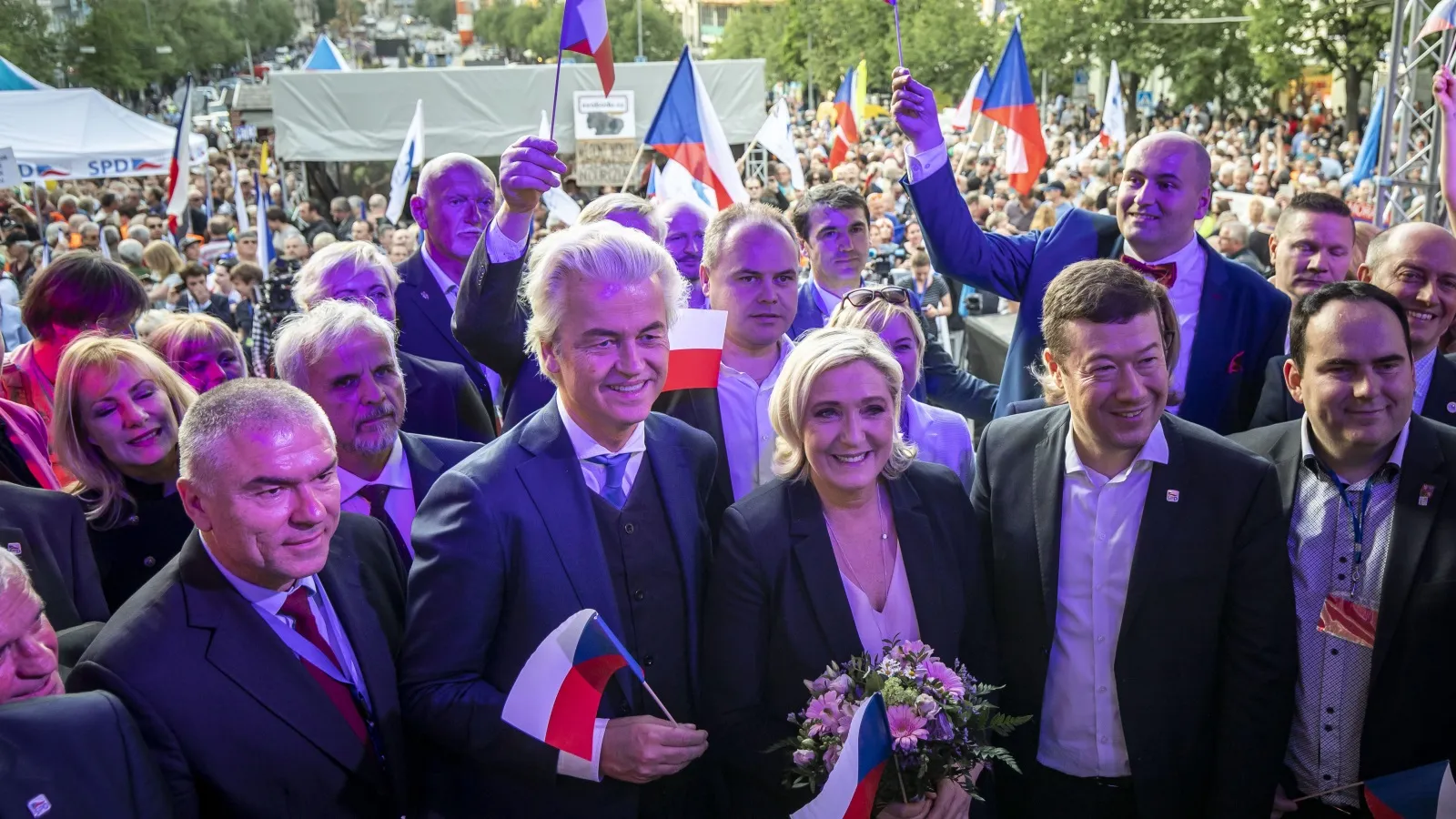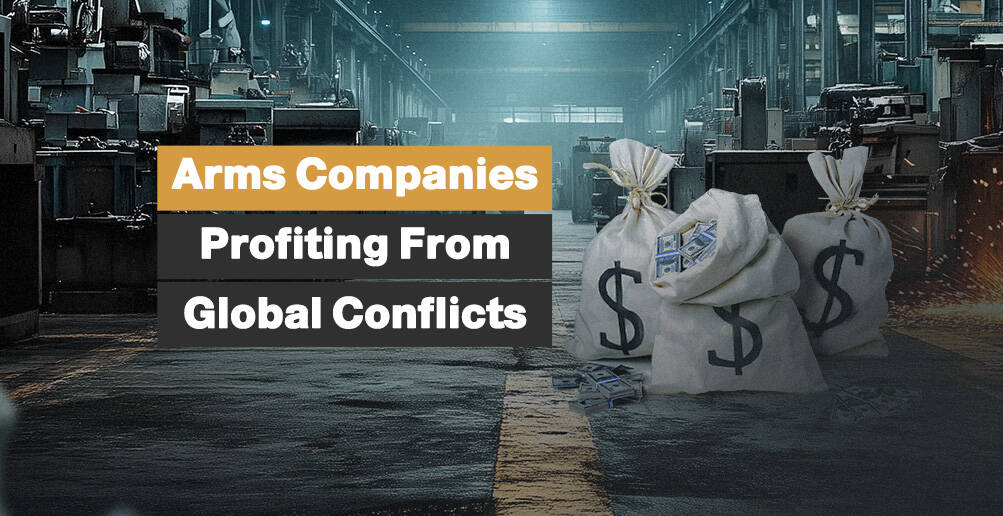Funded Islamophobia: How the UAE Contributed to France’s Far-Right Surge

“The Emirati role today is no longer limited to fighting political Islam in the Middle East.”
For more than a decade, the imprint of Emirati influence has stretched far beyond the Middle East, moving past politics and economics into far more sensitive arenas in Europe. Abu Dhabi has emerged as one of the most prominent financiers and backers of far-right movements, especially in France.
As waves of Islamophobia surged across the continent, Emirati funding networks, whether directly or through research and media fronts, pushed anti-Islam narratives to center stage and helped create a sharply polarized political and social climate toward Muslims.
In recent years, a series of leaks and investigative reports has exposed an active Emirati role in financing think tanks, media platforms, and intellectual circles that promote a hostile approach to political Islam. This role was neither hidden nor incidental; it was growing and deliberate, shaping an environment of suspicion and constant accusation toward anything related to Muslims in Europe’s public sphere.
With these developments piling up, the question has grown more urgent: how did a Gulf state become a key player in shaping the European far right’s discourse, and what impact has this strategy had on millions of Muslims across the continent?
The IFOP Poll
Amid this charged atmosphere, a new scandal erupted around the IFOP poll on Muslims in France, published on November 18, 2025. It opened yet another window onto the scale of foreign interference in shaping French public sentiment.
IFOP is one of the oldest and most respected polling institutions in France and Europe. Founded in 1938, it grew into a reference point relied upon by French media, political parties of all stripes, and both public and private institutions to understand public opinion and track social trends.
Because of that reputation, the recent poll on Muslims became a new, and perhaps the most alarming, episode in the series of Emirati interventions aimed at influencing French public opinion against Muslims. Although the poll was introduced as a neutral attempt to assess Muslims’ relationship with Islam and Islamism, it quickly became clear that the entity funding it was closely tied to a broad influence and disinformation campaign run by networks linked to Abu Dhabi.
Subsequent revelations showed that this funding was part of one of the largest covert operations targeting Islam, Muslims, and democratic institutions in Europe in recent years, an effort designed to reshape the public conversation on Islam in line with external political and ideological agendas.
From the moment IFOP published the poll results, French media, especially those on the right, seized on the findings as fresh proof of Muslim “radicalism” and “rejection” of French republican values. Front pages highlighted dramatic figures, including the claim that 46 percent of Muslims want Sharia law applied, along with suggestions that the Muslim population in France has risen from 0.5 percent in 1985 to 7 percent in 2025.
The poll relied on a very small sample of only 1,005 respondents, including just 149 veiled women, and yet it claimed that half of young Muslim women wear the hijab. This made the results statistically fragile from the start.
The terminology used in the findings was vague and poorly defined. Ambiguous words such as “Islamism,” “Salafism,” and “the Brotherhood” appeared repeatedly, even though terms such as “Sharia” were never asked directly in the questionnaire. IFOP nevertheless interpreted the data in a very specific way, speaking of a so-called “re-Islamization” of French Muslim youth and claiming that support for political Islam is increasing among them.
A deeper review showed that the headline figure of 46 percent was produced by merging several unrelated categories in a misleading manner. This raised serious doubts about the credibility of the conclusions.
The issue, however, goes far beyond weak methodology or hasty interpretation. It is part of a larger political and security project that aims to reinforce an anti-Islam narrative inside France. At its core is the involvement of a foreign power that seeks to reshape Europe’s political landscape in line with its own strategic interests.

Abu Dhabi at Work
Investigations published by the French newspapers Liberation and Mediapart on November 20, 2025, quickly revealed that the entity that commissioned IFOP to conduct the poll, a magazine called Ecran de Veille, which operates under the platform Global Watch Analysis, is in fact a front for a group working within a larger network linked to the Swiss intelligence firm Alp Services.
The company had previously been involved in the well-known “Abu Dhabi Secrets” operation, widely described as the largest covert influence campaign uncovered in Europe in recent years. The United Arab Emirates paid at least 5.7 million euros to target more than one thousand individuals and hundreds of institutions across eighteen European countries. The campaign relied on tactics that included character assassination, media manipulation, the creation of fake accounts, the alteration of Wikipedia pages, and the publication of fabricated articles intended to link targets to the Muslim Brotherhood.
A closer look at the history of the funding organization shows that Ecran de Veille and Global Watch Analysis function not simply as media platforms that criticize political Islam but as specialized outlets dedicated to publishing hostile content against the Muslim Brotherhood, Hamas, Qatar, and French Muslims more broadly.
The investigations demonstrate that this agenda does not stem from independent editorial judgment. It is driven by financial and operational ties to companies and political actors seeking to reshape public debate in France about Islam in line with a hardline Emirati narrative that opposes Islamic movements, even when this results in portraying entire Muslim communities in Europe as a security threat without credible evidence.
Identity Fears
As the IFOP poll began to circulate, it quickly became clear that the French media and political class had found the perfect material to fuel identity fears, a narrative long exploited by far-right parties to advance their agenda.
Marion Marechal Le Pen, a leading figure in the anti-immigrant National Rally party and the niece of far-right leader Marine Le Pen, described the numbers as “terrifying.”
At the same time, some government officials argued that the findings required a new phase of intensive measures to combat what they call radical Islam.
Suddenly, a set of ambiguous questions and weak survey methods was presented as conclusive proof that Muslims pose a threat to the French Republic.
The irony is that this narrative did not reflect solid or objective scientific findings. It was part of a deliberate attempt to pull France back into a climate of fear surrounding Islam.
Researchers who examined the poll stressed that the sample was not truly representative and that the questions were designed in a way that steered respondents toward a single conclusion: that Islam is a danger.
In this context, the rector of the Grand Mosque of Paris, Sheikh Chems-eddine Mohamed Hafiz, warned that such polls turn ordinary religious practice among Muslims into a marker of extremism. He argued that the report portrayed Muslims inaccurately, casting them as citizens whose loyalty is in doubt and who may be burdened with dual allegiances.
The Observatory of Islamophobia described the poll as a ready-made propaganda tool for television programs that thrive on manufacturing security fears about Muslims.
Systematic Campaigns
The issue went far beyond academic criticism, moving into the realm of direct political suspicion. Left-wing opposition deputies from the party La France Insoumise described the poll as part of a “systematic campaign to create an internal enemy.”
Deputy Paul Vannier said that what happened was not mere scientific research but a public shaming campaign targeting millions of French citizens. Fellow deputy Clemence Guette added that a foreign power, namely the UAE, is actively contributing to the division of French society, while domestic institutions allow these interventions to go unchecked.
Subsequent revelations confirm that the poll was not an isolated incident but part of a broader pattern of Emirati interference in European affairs.
In the same year, Abu Dhabi faced accusations of attempting to influence a sensitive financial investigation targeting French deputy Carlos Martinez-Belongo, a pro-Palestinian lawmaker critical of Israeli and Emirati policies, through a memorandum reportedly issued under external pressure.
In October 2025, new suspicions of Emirati meddling in France emerged after a report by L’Informe revealed that France’s anti-money laundering agency, Tracfin, issued a memo containing numerous errors against Martinez-Belongo, apparently under pressure from Abu Dhabi, which sought to curb criticism of its interventions in French affairs.
Martinez-Belongo described the incident as a genuine scandal linked to foreign interference and filed a complaint against unknown parties, accusing them of “false reporting” and “collaboration with a foreign power.”
Multiple leaks have also shown the involvement of Emirati agencies in surveillance and smear campaigns targeting European political and academic figures, especially those connected to human rights or critical of UAE influence.
Taken together, these developments show that what unfolded in France is more than a politically exploited opinion poll. It is a complex operation involving private intelligence agencies, foreign funding, far-right media, and public relations networks, all working to amplify a narrative portraying Muslims as an existential threat.

A New Narrative
In an interview with Al-Estiklal, France-based Algerian journalist Nasser Mohamed said the controversy surrounding the IFOP poll shows that what happened was not a simple attempt to analyze the situation of Muslims in France, as the sponsoring party claimed. Instead, it was part of a broader effort to reproduce a hard-line security narrative that benefits the far right and helps pave the way for laws that target Muslims and place them under permanent suspicion.
Mohamed added that the Emirati role today is no longer limited to fighting political Islam in the Middle East or supporting authoritarian regimes there. It has become part of a battle unfolding inside Europe itself, a battle in which French fears are used as a political weapon and public opinion is stirred through coordinated campaigns coming from outside the country.
“The danger of this interference lies in exploiting the fragility of the French landscape, especially amid the unprecedented rise of the far right and deepening social divisions,” he said.
“Any media content hostile to Muslims in this context quickly becomes fuel for racist rhetoric and can have a direct impact on daily policy making and legislation.”
“If this investigation has revealed Emirati involvement in only one poll, how many similar campaigns came before it that were never uncovered, and how many covert influence operations have already helped reshape the image of Muslims within French society?” the journalist added.
Mohamed wondered whether the French public understands that much of the growing hatred in the country does not come solely from within but also from external operations that use money, influence, and media power to push society toward deeper polarization.
“The IFOP affair is not simply a case of flawed research methodology. It is a sign of a darker reality in which the UAE is trying to reshape the identity of an entire society through tools that appear scientific but are part of a wider influence strategy.”
Mohamed emphasized that unless an official and transparent investigation is launched to uncover funding sources and expose the mechanisms of Emirati infiltration, both France and its Muslim population will remain vulnerable to similar operations at a politically and socially delicate moment that cannot withstand further division.
Sources
- 'Islamophobic' poll on Muslims in France accused of links to UAE
- Poll: Islamophobia in France Is Widespread, Deep-Rooted, and Multi-Dimensional [Arabic]
- French Council of the Muslim Faith Condemns the Misuse of Polls Against Muslims [Arabic]
- Survey Finds French Muslim Youth Favor Sharia Over National Law [Arabic]
- France: Anti-Muslim Incidents Rise 75 Percent Since Early 2025 [Arabic]











